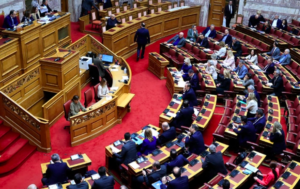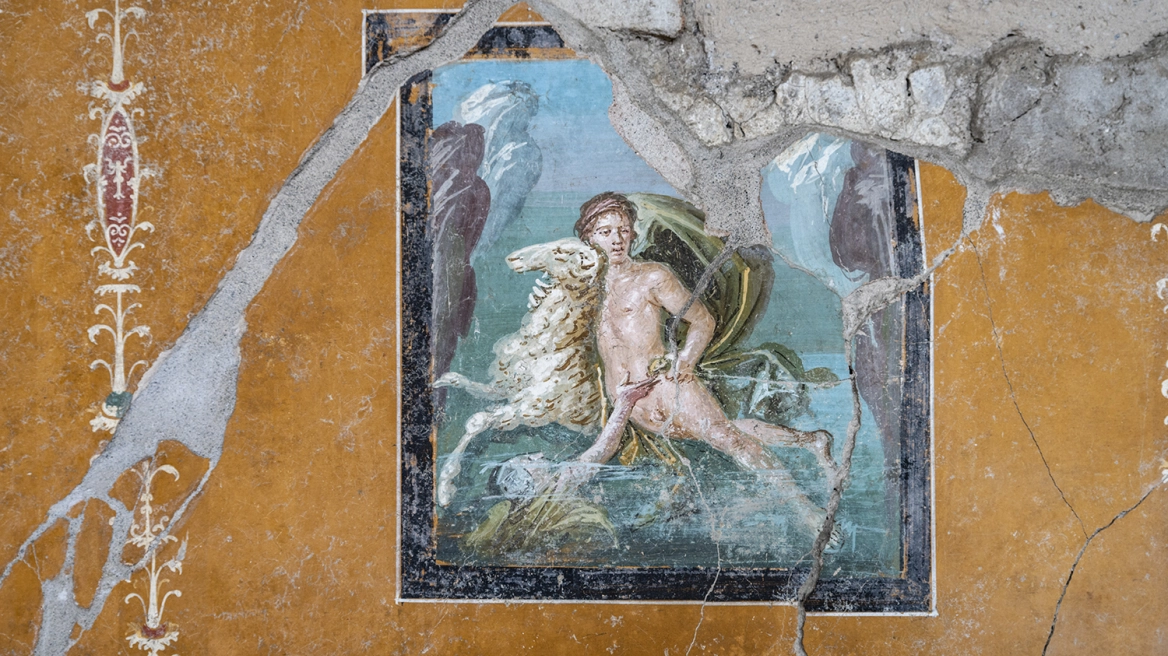In unprecedented parliamentary institutional maneuvers, opposition parties are calling for the immediate summoning of Supreme Court Prosecutor Georgia Adeilini to Parliament to provide explanations regarding the report on the surveillance case.
Intense negotiations and communications among SYRIZA, PASOK, KKE, Plefsi Eleftherias, and New Left began on Tuesday afternoon and concluded on Wednesday evening with statements from Mrs. Zoe Konstantopoulou, who is spearheading the initiative.
These parties decided to submit similar requests, demanding the immediate submission of the relevant report to Parliament and the summoning of both the Supreme Court Prosecutor and Deputy Prosecutor Achilleas Zisis to the Institutions and Transparency Committee to provide explanations for their decisions.
The SYRIZA letter stated:
“With this letter, we call for the urgent convening of the Committee under Article 43A of the Parliament’s Rules of Procedure, where Supreme Court Prosecutor Georgia Adeilini and Deputy Prosecutor Achilleas Zisis should be summoned to inform us and provide the complete file of the wiretapping scandal, which led to the decision to archive the case.”
PASOK’s request emphasized:
“This development, the latest episode in the wiretapping scandal, raises numerous questions regarding the reasoning behind the decision to archive, the ‘sufficient indications’ leading to the referral of private individuals to court, and the content of the evidence, which ‘incontrovertibly’ concludes no involvement of state officials with Predator, despite many surveillance targets being the same. Meanwhile, neither the Prosecutor’s report nor the preliminary examination material that led to it has been shared with the Hellenic Parliament or the President of PASOK-Movement for Change, Mr. Nikos Androulakis, whose legal actions brought to light one of the largest scandals of the Metapolitefsi era.”
The New Left referred to this as a “black day” for Democracy and Justice.
Similarly, the KKE parliamentary group requested only the transmission of the report.
“After proposing the convening of the Institutions Committee, I received unanimous support from parties defending Democracy and Transparency. I contacted Mr. Androulakis, Haritsis, Kasselakis, and Koutsoumbas, all of whom agreed on the importance of examining the scandal. Requests from the five parliamentary groups are being submitted by the end of the day for the convening of the Institutions and Transparency Committee and the summoning of Mrs. Adeilini,” stated the President of Plefsi Eleftherias. “We demand the immediate convening of the Institutions Committee. Parliament remains open until Friday. Delays should not be played.”
On the other hand, Parliament Speaker Kostas Tasoulas told journalists that Parliament does not have the right to summon judges and demand explanations for judicial decisions, nor is it considered a supreme court to review cases.
Parliamentary sources informed protothema.gr that Parliament has never previously reviewed judicial decisions, especially those of supreme courts, as it would equate to abolishing the separation of powers.
They also noted that the request to summon Mrs. Adeilini or another judicial official to provide explanations for judicial decisions is unlawful since the Parliament’s regulations state that supreme judges are summoned to address operational issues of the judiciary to enhance transparency.
The opposition parties’ request is based on a Parliament regulation article stating that hearings of individuals are mandatory if requested by two-fifths (2/5) of the committee members. The Institutions and Transparency Committee has 27 members, of which 10 are from SYRIZA, PASOK, Plefsi Eleftherias, KKE, and New Left. This means at least one more member from Hellenic Solution, Niki, or Spartans is needed to complete the two-fifths requirement.
Floridis: Institutional Decline in Attacking the Judiciary
Justice Minister Giorgos Floridis had earlier described the “attack” from opposition leaders and parliamentary representatives against the Judiciary as “unprecedented, incredible, unacceptable decline” and “institutional irrationality” following the announcement by the Supreme Court Prosecutor on the completion of the preliminary examination into phone surveillance.
Floridis emphasized that the attack on the Prosecutor, and therefore on Greek Justice, surpassed all institutional boundaries. He pointed out that those attacking for the issuance of a 300-page report admitted in Parliament that they had not read it because they did not have it. Therefore, they did not know the evidence, the witness statements, the reports from independent authorities, the police reports, and all other investigative materials.
“While admitting they do not know all this, they attacked the Supreme Court Prosecutor and the prosecutor who conducted the preliminary investigation. They then asked for the report to be brought to Parliament, despite not knowing its contents. Institutional seriousness required them to request the report first and then comment. We experienced an unprecedented, incredible, unique, outrageous, indescribable decline: attacking the highest judicial authority for a report they are unaware of,” Floridis said.
He continued, stating that political leaders and party representatives created distrust in the Judiciary but added that the public loses faith in the political system when they see politicians attacking an independent authority. This issue arose today. The problem is not the lack of trust in the Judiciary but the public’s aversion to politics when they see irresponsible behavior from politicians.
Floridis also criticized that the same people who praised the deputy prosecutor last week for conducting a thorough investigation now condemned him.
Regarding the “common center” of surveillance, Floridis called it ridiculous, explaining that the report indicated different centers for legal and illegal surveillance. He also accused opposition parties of failing to recognize this distinction.
He ended by criticizing political leaders for not addressing the Independent Authorities’ statements, which have also declared no evidence of state use of illegal software.
Floridis concluded by saying that his comments were probably unnecessary, but the institutional irrationality experienced today was astonishing. “Let the public judge,” he concluded.
Ask me anything
Explore related questions





